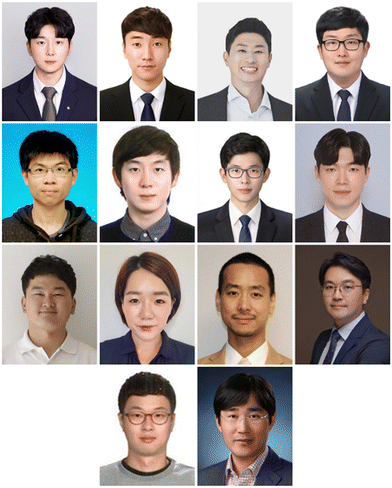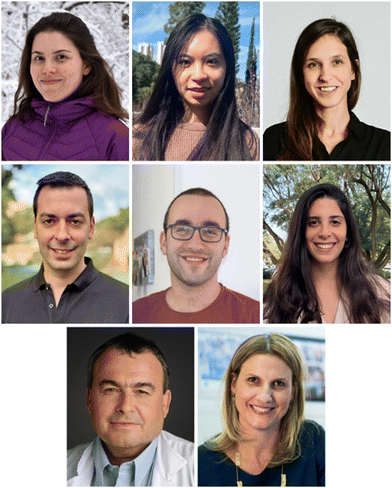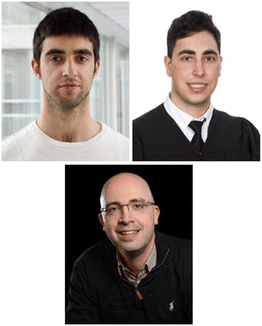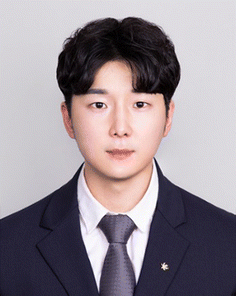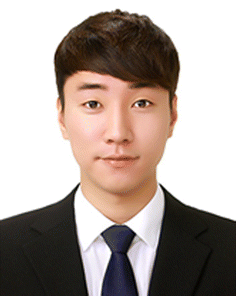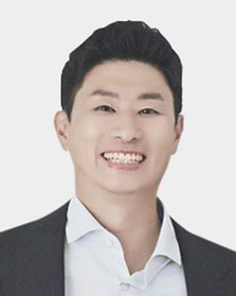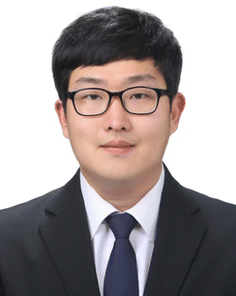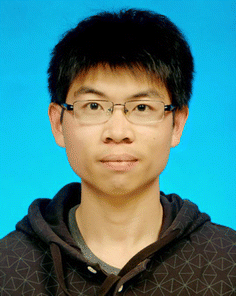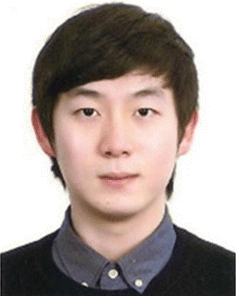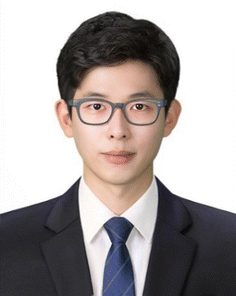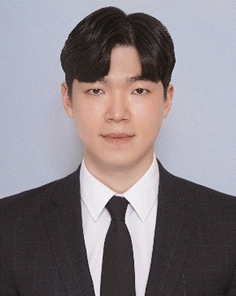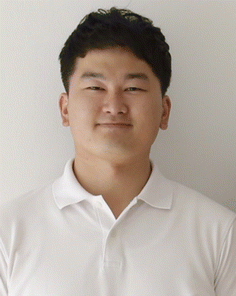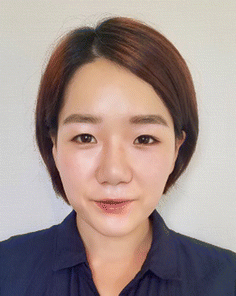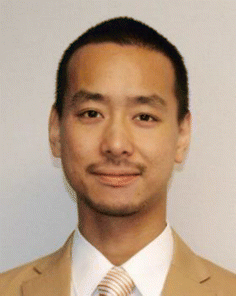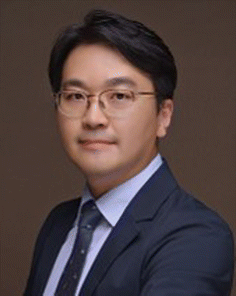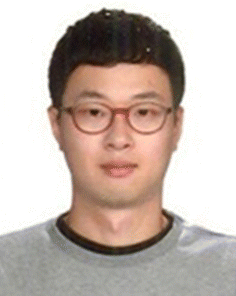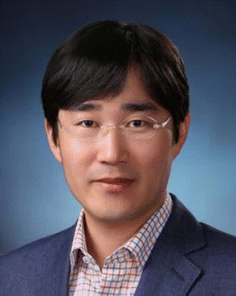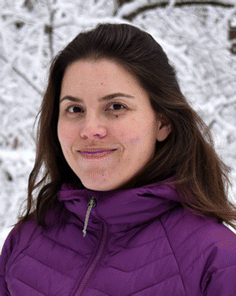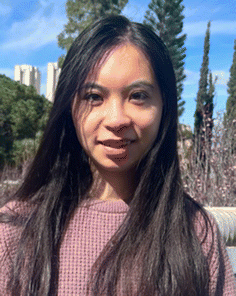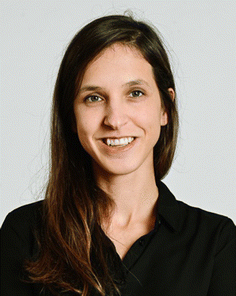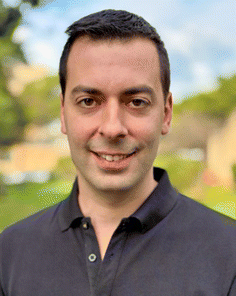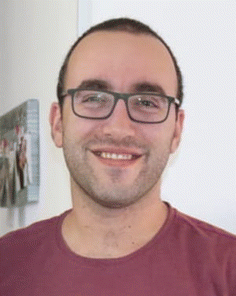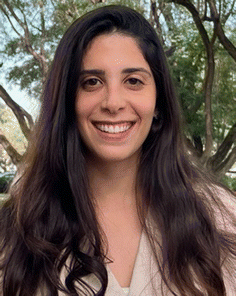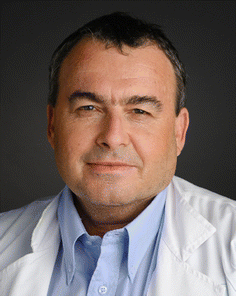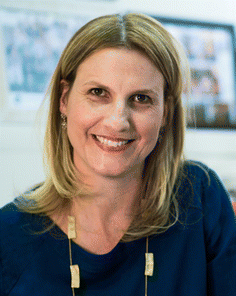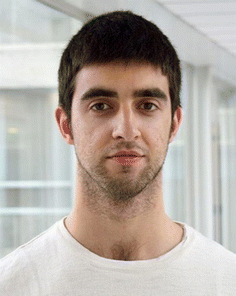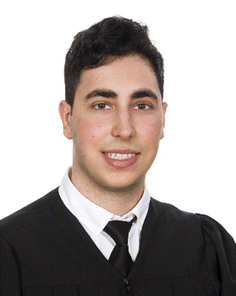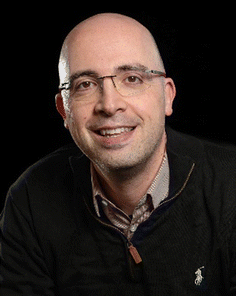DOI:
10.1039/D3NH90014B
(Editorial)
Nanoscale Horiz., 2023,
8, 560-567
Nanoscale Horizons 2022 Outstanding Paper Award
Abstract
Recognizing some of the outstanding work published in Nanoscale Horizons in 2022, as well as the authors behind those articles. Discover our winners and their outstanding articles below.
It gives us great pleasure to introduce the winners of our 2022 Outstanding Paper Award in this Editorial.
Our selection process continues to focus on the science presented and the potential future impact of the work. You can find more details of the process in our Editorial from 2019.
With the high calibre of the articles we published throughout 2022, it was a difficult choice for our Editorial and Advisory Boards to select winners from the shortlist. Nonetheless, we are delighted to introduce our Outstanding Communication winner and runner-up, as well as our Outstanding Review of 2022.
Please join us in congratulating our winners; we hope you enjoy reading their outstanding articles as much as we did.
Nanoscale Horizons 2022 Outstanding Article winner
Biomimetic reconstruction of butterfly wing scale nanostructures for radiative cooling and structural coloration
Jinwoo Lee, Yeongju Jung, MinJae Lee, June Sik Hwang, Jiang Guo, Wooseop Shin, JinKi Min, Kyung Rok Pyun, Huseung Lee, Yaerim Lee, Junichiro Shiomi, Young-Jin Kim, Byung-Wook Kim and Seung Hwan Ko
This study (https://doi.org/10.1039/D2NH00166G) demonstrates a biomimetic multifunctional film that replicates the nanostructure of the butterfly wing scale of Archaeoprepona demophon to reproduce its radiative cooling and structural coloring functionalities. The wing scale of this specific butterfly species has the nanoarchitecture of nanopores and a periodic grating, which serve to generate cooling and coloring effects, respectively. Inspired by these fascinating functionalities of the butterfly wing scale, we employed a sacrificial template-based solution process and laser interference lithography to reconstruct its nanostructure, which shows a maximum cooling effect of 8.45 °C and a large area of the color gamut.
A large group of multinational researchers from a variety of respected institutions participated in this research on biomimetics with support from the Hyundai Motor Group. With the lead of the team at Seoul National University and the Hyundai Motor Group, a global group, which consists of universities and a multinational company in Korea, the United States, and Japan, delivered a successful study through collaborative teamwork on the microstructure fabrication based on solution-process/laser lithography, computational analysis, and optical/heat-transfer film characterization on the multifunctional cooling and coloring effects.
Nanoscale Horizons 2022 Outstanding Article runner-up
Shining light in blind alleys: deciphering bacterial attachment in silicon microstructures
Heidi Leonard, Xin Jiang, Sofia Arshavsky-Graham, Liran Holtzman, Yuri Haimov, Daniel Weizman, Sarel Halachmi and Ester Segal
This article (https://doi.org/10.1039/D2NH00130F) introduces a novel optical platform for quantitative characterization of the dynamic bacteria–surface biointerface. We employ an engineered silicon chip of varying periodic microtopologies, which presents a desired combination of intrinsic optical properties for label-free and real-time bacteria attachment monitoring and a substrate that is easily manipulated with different topographies and chemistries. We reveal how different bacterial species, ranging from laboratory strains to clinical isolates, preferentially colonize surfaces of specific characteristics and monitor over the formation of a biofilm. This is essential for the investigation and control of biofouling and bacterial infections in various medical and environmental fields.
This work was made possible by the interdisciplinary collaboration between engineers and medical doctors working as a team. The long-term aim of the collaboration between the research group of Professor Ester Segal at the Technion and the team at the Bnai Zion Medical Center, led by Professor Halachmi, is to design a medical device for rapid detection of pathogens and assessment of their antimicrobial susceptibility. During the team's effort to develop a solution for this unmet clinical need, the team realized how silicon diffraction gratings, possessing tunable periodic microtopologies and surface chemistries, can serve as a new toolbox for the basic investigation of how different material properties guide bacterial attachment and colonization. Dr Heidi Leonard, at the time a graduate student advised by Segal and Halachmi, initiated this important journey.
Nanoscale Horizons 2022 Outstanding Review winner
Machine learning in electron microscopy for advanced nanocharacterization: current developments, available tools and future outlook
Marc Botifoll, Ivan Pinto-Huguet and Jordi Arbiol
This review (https://doi.org/10.1039/D2NH00377E) evaluates the state-of-the-art of machine learning applied to electron microscopy (and to materials and nano-sciences), from traditional imaging techniques to the newest higher-dimensionality ones, also covering recent advances in spectroscopy and tomography. The present review provides a practical guide for microscopists, and in general for material scientists to apply the offered set of tools to their own research. In addition, the review also explores the state-of-the-art of other disciplines with a broader experience in applying artificial intelligence methods to their research, to narrow down the incoming future of electron microscopy, its challenges and outlook.
Dr Heather Montgomery, Managing Editor
Professor Dr Katharina Landfester, Editorial Board Chair
Author Biographies
Nanoscale Horizons 2022 Outstanding Article winner
Biomimetic reconstruction of butterfly wing scale nanostructures for radiative cooling and structural coloration
Jinwoo Lee is an assistant professor in the Mechanical, Robotics, and Energy Engineering Department, Dongguk University, Seoul, South Korea. He received his BS and MS degrees from the Korea Advanced Institute of Science and Technology (KAIST) in 2013 and 2015, respectively. He received his PhD degree from the Department of Mechanical Engineering at Seoul National University in 2021. He also worked as a postdoctoral researcher at the Georgia Institute of Technology until 2022. His research focuses on thermoelectric devices, stretchable/wearable electronics, radiative cooling, and the human–machine-interface.
Yeongju Jung received his BS degree in the Department of Mechanical Engineering at Hanyang University in 2018. He is currently a PhD student at Seoul National University working with the Applied Nano and Thermal Science Lab under the supervision of Professor Seung Hwan Ko. His research focuses on laser-induced graphene, thermal management, thermoelectric devices, and radiative-cooling materials.
MinJae Lee received his BS degree in mechanical engineering and MS degree in the material science program from UC, San Diego in 2015 and 2016, respectively. He joined the Hyundai Motor Group in 2016. He is currently a PhD candidate under Professor Seung Hwan Ko in mechanical engineering at Seoul National University. His research focuses on radiative cooling, solar cells, and energy saving and harvesting materials.
June Sik Hwang is a staff engineer at Samsung Electronics. He received his PhD Degree in Mechanical Engineering at the Korea Advanced Institute of Science and Technology. His research interests include advanced laser processing and laser-assisted fabrication.
Jiang Guo is currently a postdoctoral researcher in the Department of Mechanical Engineering at the University of Tokyo. He received his PhD degree in Mechanical Engineering from the same institution in 2021. His research interests include photonic structure design by materials informatics, radiative cooling, solar-energy utilization, and related fields.
Wooseop Shin received his BS degree in the Department of Mechanical Engineering at Ajou University in 2017, and his MS degree in the Department of Mechanical Design Engineering at Hanyang University in 2019. He is currently a PhD student at Seoul National University studying under Professor Seung Hwan Ko in the Applied Nano and Thermal Science Lab. His research focuses on optics, laser-induced liquid-metal printing and material interactions and femtosecond laser processing for extremely high resolution.
JinKi Min is a PhD student in the Applied Nano and Thermal Science Lab, led by Prof. Seung Hwan Ko's group at Seoul National University, South Korea. He received his BS degree from the Department of Naval Architecture and Ocean Engineering at Seoul National University. His research focuses on laser-induced material characterization, nanomaterials, and energy devices.
Kyung Rok Pyun received his BS degree in mechanical engineering from Sungkyunkwan University in 2016 and his MS degree in mechanical engineering from Seoul National University in 2018. He is currently a PhD student at Seoul National University working in the Applied Nano and Thermal Science Lab under the supervision of Professor Seung Hwan Ko. His main research focuses on thermal management
via radiative cooling and heating.
Hu Seung Lee has been working as an Associate Professor in the Department of Mechanical Engineering Education, Chungnam National University, Daejeon, South Korea since 2016. Prof. Lee received his PhD from the Department of Mechanical Engineering, Korea Advanced Institute of Science and Technology (KAIST), South Korea, and his major research areas include laser machining, laser patterning, laser ablation of materials, 3D printing, device fabrication, and signal processing of high-noise actuators.
Yaerim Lee received her PhD degree in engineering from the University of Tokyo and is currently a lecturer at the University of Tokyo. Her PhD research specialty was designing and fabricating metallic plasmonic nanostructures for optical sensors/devices. Her current research interests include (1) the understanding of dynamic wetting in terms of scales and regimes using micro–nano structures with controlled surface wettability, (2) controlling water condensation and freezing for thermal management applications, (3) thermoelectric energy-harvesting devices, and (4) scalable radiative-cooling materials.
Junichiro Shiomi is a Professor in the Institute of Engineering Innovation, School of Engineering at the University of Tokyo (UTokyo). He received his BE (1999) from Tohoku University, and PhD (2004) from the Royal Institute of Technology (KTH), Sweden. Leading the Thermal Energy Engineering Lab, he has been pursuing research to advance thermal management, waste-heat recovery, and energy-harvesting technologies based on nano-to-macro innovation in materials, structures, and systems. Prof. Shiomi has been leading several projects including Grant-in-Aid for Scientific Research (S) (JSPS), Core Research for Evolutional Science and Technology (JST-CREST), Precursory Research for Embryonic Science and Technology (JST-PRESTO), and New Energy and Industrial Technology Development Organization (NEDO) projects. He is a Fellow of the Japan Society of Mechanical Engineers and a Member of the Science Council of Japan. He serves as an editor of
Nanoscale and Microscale Thermophysical Engineering.
Young-Jin Kim is currently a KWON-OH-HYUN-endowed associate chair professor in the Department of Mechanical Engineering and Department of Aerospace Engineering at KAIST, Republic of Korea. He received his BS, MS, and PhD degrees from KAIST in 2002, 2004, and 2008, respectively. He worked as a postdoctoral research associate and research professor in KAIST by 2014. He joined Nanyang Technological University (NTU), Singapore as a Nanyang Assistant Professor and NRF Fellow from 2014 to 2019. He is an editorial board member of
International Journal of Precision Engineering and Manufacturing (IJPEM), topical editor of
Current Optics and Photonics (COPP), and guest editor of
Sensors,
Photonics, and
Micromachines. His research interests are Ultra-Precision Metrology and Manufacturing (UPM2) technologies using ultrafast femtosecond laser pulses. Detailed research topics include high-precision dimensional metrology for semiconductors, flat-panel displays, and precision-engineering products, precision-laser manufacturing of flexible/stretchable electronics/optics, and next-generation space metrology missions including high-precision laser ranging for formation-flying satellites, broadband spectroscopy, and high-density free-space communication.
Byung-Wook Kim is an Associate Research Scientist in the Department of Mechanical Engineering and in the Department of Civil Engineering and Engineering Mechanics at Columbia University. Prior to this, he was a senior research engineer at the Hyundai Motor Group, after earning his MS in Applied Physics and PhD in Materials Science and Engineering at the University of California, San Diego. His research focuses on sustainable-energy technologies through materials engineering and related fields, and understanding the electrical, thermal, and optical properties of materials at the nano- to macro-scale.
Seung Hwan Ko is a professor at the Applied Nano and Thermal Science (ANTS) Lab, Mechanical Engineering Department, Seoul National University, Korea. Before joining Seoul National University, he was a faculty member at KAIST, Korea since 2009. He received his PhD degree in mechanical engineering from UC Berkeley in 2006. He worked as a postdoctoral researcher at UC Berkeley until 2009. His current research interests include stretchable/flexible electronics, transparent electronics, soft robotics, wearable electronics, laser-assisted nano/micro fabrication, and crack-assisted nanomanufacturing.
Nanoscale Horizons 2022 Outstanding Article runner-up
Shining light in blind alleys: deciphering bacterial attachment in silicon microstructures
Heidi Leonard earned her BA in chemistry from Pomona College (Claremont, California) and her MS in chemistry from the University of California, San Diego (La Jolla, California). Under the guidance of Prof. Ester Segal, she earned her PhD in Biotechnology Engineering from the Technion – Israel Institute of Technology (Haifa, Israel) in 2018. She served as an NRC postdoctoral researcher at the National Institute of Standards and Technology in Maryland before leading the R&D team at a food safety startup based in College Park, Maryland. She is currently leading the R&D team at Potomac Photonics, Inc, a microfabrication company, based in Maryland, USA. Her scientific interests include developing micro- and nano-fabrication techniques for biomedical and biotechnology purposes, photonic and optical materials, clinical microbiology, and teaching college chemistry.
Xin Jiang received her BSc degree in Biotechnology and Food Engineering with
cum laude distinction from the Technion – Israel Institute of Technology in 2020. She is a PhD candidate at the Technion under the direction of Professor Ester Segal and her research is focused on the design of photonic structures for the study of the interface between microorganisms and micro-patterned surfaces. She is also developing sensors and biosensors for rapid detection of bacterial infections and antimicrobial susceptibility testing for clinical practice.
Sofia Arshavsky-Graham earned her BSc in Biotechnology and Food Engineering from the Technion – Israel Institute of Technology with a
summa cum laude distinction. In 2021, she completed a PhD degree in Biotechnology Engineering from the Technion and Dr. rer. nat. degree in Technical Chemistry with
summa cum laude distinction from the Leibniz University Hannover, both under the tutelage of Professor Ester Segal and Professor Thomas Scheper. Her doctoral research focused on studying and developing microfluidics-integrated porous silicon-based optical biosensors for medical diagnostics. Sofia is the recipient of the Israel's Council for Higher Education Postdoctoral Fellowship for Women in Science (2021–2023) and is now a postdoctoral research fellow at the School of Biomedical Engineering at the University of British Columbia. Her current research is focused on open-space microfluidics and reconfigurable microfluidic devices for biomedical applications.
Liran Holtzman received his BSc in Biotechnology and Food Engineering from the Technion – Israel Institute of Technology in 2016. As part of his research experience, Liran has worked on prolonged controlled delivery of nerve growth factor using porous silicon nanostructures under the supervision of Prof. Ester Segal. Recently he received his Doctor of Medicine degree from the Sackler Faculty of Medicine at Tel Aviv University, Israel. His recent medical research focuses on the treatment of lung cancer.
Yuri Haimov earned a BSc degree in Biotechnology Engineering from the Braude Academic College of Engineering, Israel. He later received an MSc degree in Biotechnology and Food Engineering from the Technion – Israel Institute of Technology under the tutelage of Professor Ester Segal. He is now a production manager and process engineer at International Flavors & Fragrances, Israel.
Daniel Weizmann earned her BSc in Biotechnology and Food Engineering from the Technion – Israel Institute of Technology with honors. As part of her research training at the Technion, she worked on porous silicon biosensors at the Segal Lab. She later trained at the Weizmann Institute in computational biology and she is now a bioinformatics scientist at Cytoreason, a biotech company.
Sarel Halachmi received his Doctor of Medicine degree from the Faculty of Medicine at the Technion – Israel Institute of Technology. He specialized in Urological Surgery at the Bnai Zion Medical Center, Haifa, Israel. Sarel was a research fellow at the Johns Hopkins Hospital working in the group led by Professor David Sidrabnsky. He specialized in Pediatric Urology Surgery at the Sick Children’s Hospital at the University of Toronto, under the supervision of Professor Tony Khoury. At present, Sarel serves as the Chair of the Department of Urology Bnai Zion Medical Center and a Clinical Full Professor at the Rappaport Faculty of Medicine of the Technion.
Ester Segal earned her BSc degree in Chemical Engineering from the Technion – Israel Institute of Technology with a
cum laude distinction. She completed her PhD in Chemical Engineering from the Technion in 2004 and joined the University of California – San Diego, where she was trained under the direction of Professor Michael J. Sailor as a Rothschild postdoctoral fellow. She began her independent career in the Department of Biotechnology and Food Engineering at the Technion in 2007, where she is a Full Professor and the Beatrice Sensibar Chair in Engineering. Ester is the recipient of the 2019 Advances in Measurement Science Lectureship Award by the American Chemical Society, and she serves on the advisory boards of
Nanoscale Horizons,
ACS Sensors,
ACS Measurement Science Au, and more. Her research focuses on the broad interface between materials science and biotechnology to address challenges in medical diagnostics, food safety, and therapy.
Nanoscale Horizons 2022 Outstanding Review winner
Machine learning in electron microscopy for advanced nanocharacterization: current developments, available tools and future outlook
Marc Botifoll graduated in Nanoscience and Nanotechnology at Universitat Autònoma de Barcelona (UAB) ranking first in the 2018 promotion. He was one of the top students in the Master's program of Multidisciplinary Research in Experimental Sciences (MMRES) at BIST-Universitat Pompeu Frabra (UPF) in 2019. In 2019 he joined the ICN2 PhD Programme within the Advanced Electron Nanoscopy Group (GAe-N). He joined GAe-N at ICN2 in 2017 and since then his research has dealt with the advanced (S)TEM-related study of nanostructures and developing AI methods based on ML/DL for automating its data analysis. He is the author of 8 publications.
Ivan Pinto-Huguet graduated with a double Major in Physics and Chemistry in 2020 and got his Major in Mathematics in 2021. In 2022, he got the Master of Multidisciplinary Research in Experimental Sciences (MMRES) at BIST-UPF. In 2019 he joined the ICN2 Advanced Electron Nanoscopy Group (GAe-N) as an undergrad student and enrolled for the ICN2 PhD Programme in 2022. His research deals with the advanced (S)TEM-related study of nanostructures and developing AI methods based on ML/DL for automating its data analysis.
Jordi Arbiol graduated in Physics at the Universitat de Barcelona in 1997, where he also obtained his PhD in 2001. Since 2015 he has been ICREA Prof. at Institut Català de Nanociència i Nanotecnologia (ICN2). He was President of the Spanish Microscopy Society (SME) (2017–2021) and Vice-President (2013–2017). Since 2019, he has been a Member of the Executive Board of the International Federation of Societies for Microscopy (IFSM). He is Scientific Coordinator of the Joint Electron Microscopy Center at ALBA Synchrotron (JEMCA) and Founder member of e-DREAM. He is an author of 438 scientific publications, with more than 27
![[thin space (1/6-em)]](https://www.rsc.org/images/entities/char_2009.gif)
500 citations and a h-index of 92 (GoS).
|
| This journal is © The Royal Society of Chemistry 2023 |
Click here to see how this site uses Cookies. View our privacy policy here. ![[thin space (1/6-em)]](https://www.rsc.org/images/entities/char_2009.gif) 500 citations and a h-index of 92 (GoS).
500 citations and a h-index of 92 (GoS).

